SMC workshop times are available on ANU MyTimetable. These workshops are on-campus only. Please sign-up for a workshop as soon as possible.
The weekly workshop sessions are the most important learning activity in SMC. If you’re enrolled in the class you must attend (in person) every week.
What to do#
Before you attend the workshop you must have read the corresponding lecture material (see below) and have submitted your weekly diary entry. Each week’s content includes:
- a description of the “creative provocation” for that week’s diary entry
- videos to watch
- code to read
- other reading material (papers, blog posts, etc.)
Engaging in the workshops fully is your guarantee of success in this course. Nobody in the class has experience in computer music (you wouldn’t need the course in that case) but most folks will either have experience in computing or music. The workshops are where you get to fill in the gaps in your knowledge and work with the folks who will become your laptop ensemble by the end of the semester. Further, if you do not participate in workshops, you will not be able to fully complete your portfolio assessment items. Plan to not miss a single one.
Workshop Timeline#
Each workshop will include 1.5 hours of teaching and 0.5 hours of individual consultation time.
| time | activity |
|---|---|
| 00:00 | show up, get settled |
| 00:05 | listen to that week’s AV diary submissions |
| 00:30 | crit discussion |
| 00:40 | small group jam activity |
| 01:00 | group performances |
| 01:20 | discussion and feedback |
| 01:30 | individual consultation time |
Time is precious and we don’t want to waste yours so we will stick to this timeline as much as possible.
In the consultation time you can feel free to talk to the tutor about your work, keep working in the classroom with your ensemble, or leave the classroom if you want.
Content#
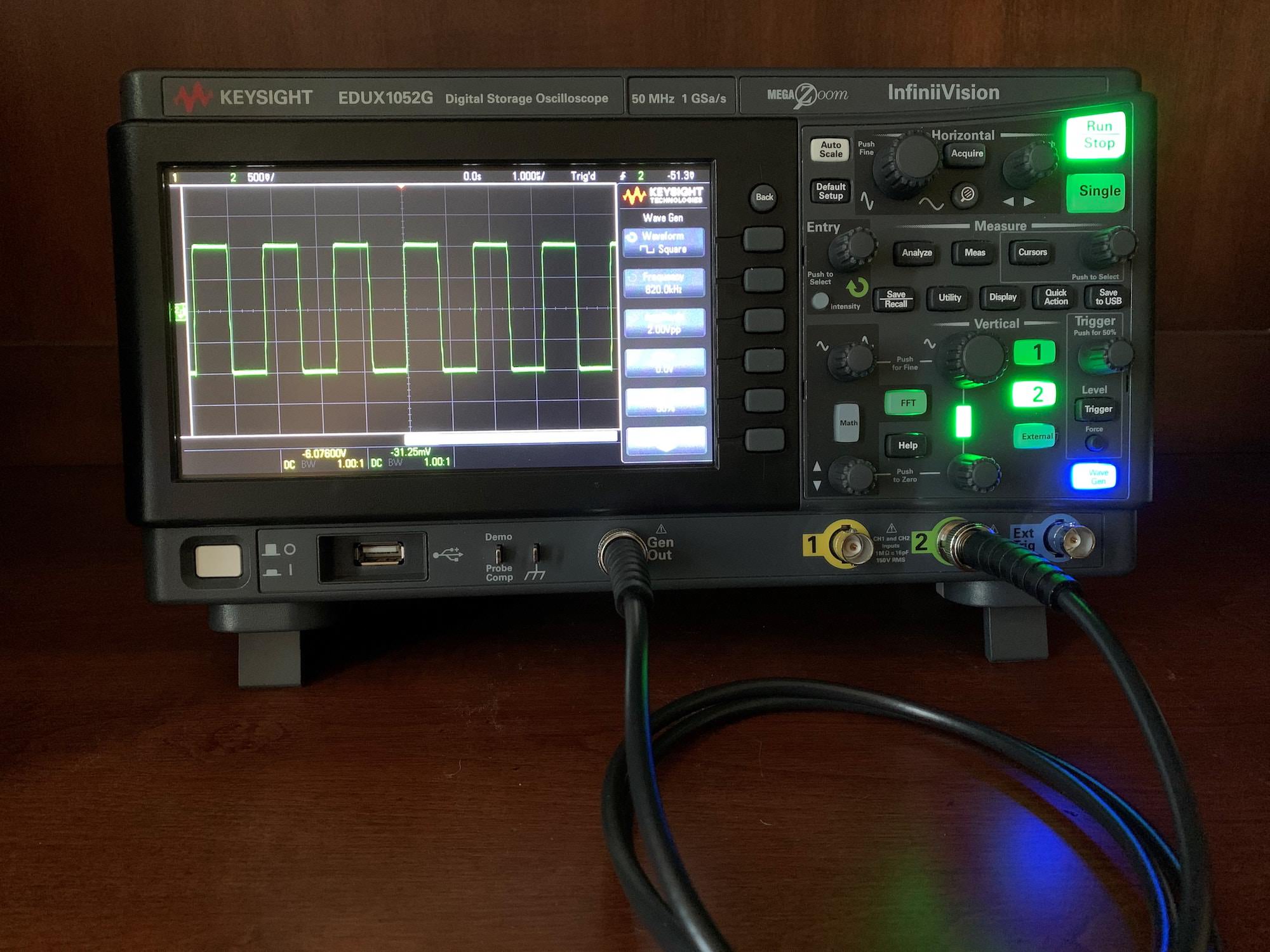
Week 1: hello sine
Your first beeps and boops
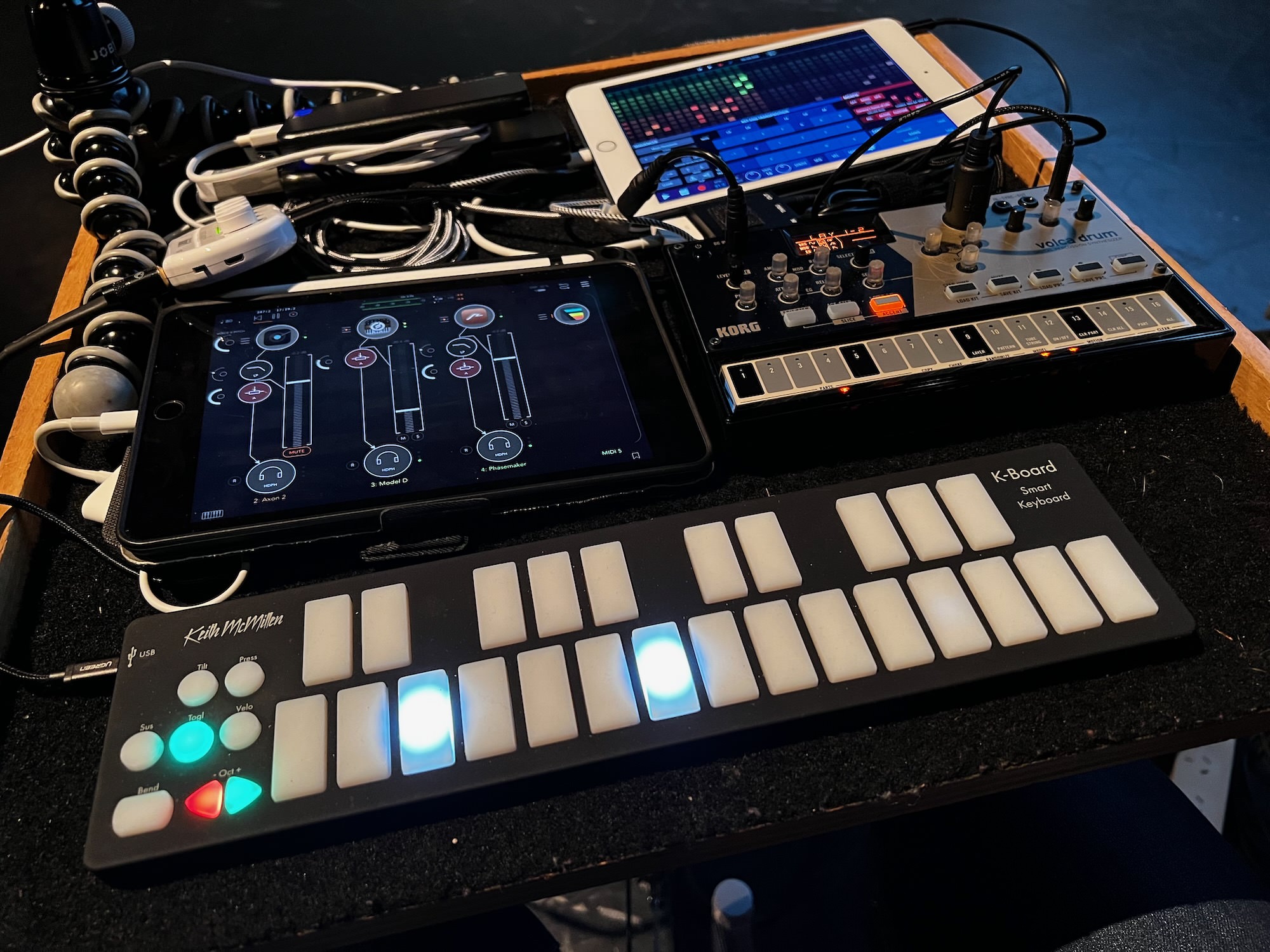
Week 2: digital synthesis
So what types of beeps and boops can we make, actually?
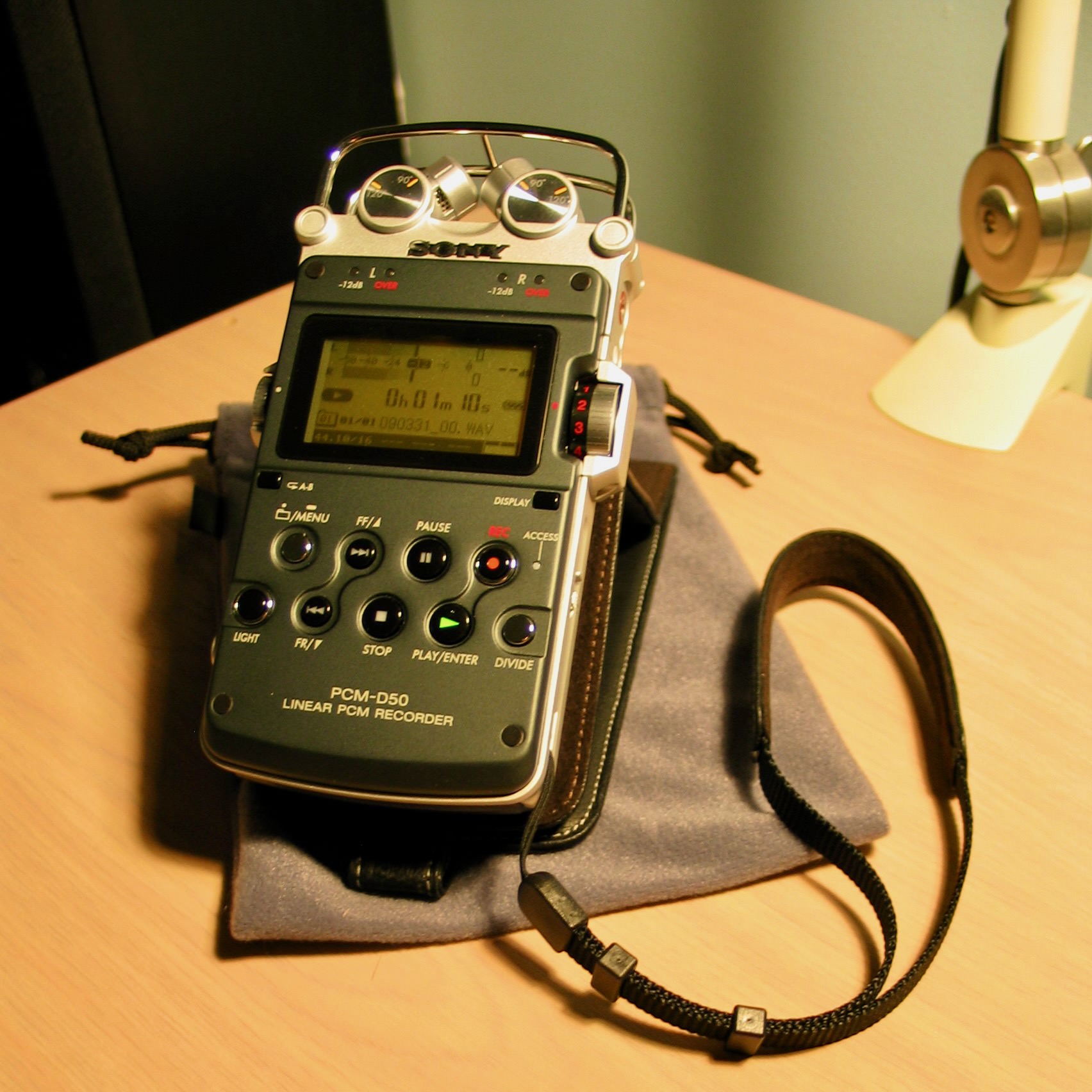
Week 3: sampling 1
Working with pre-recorded sound material
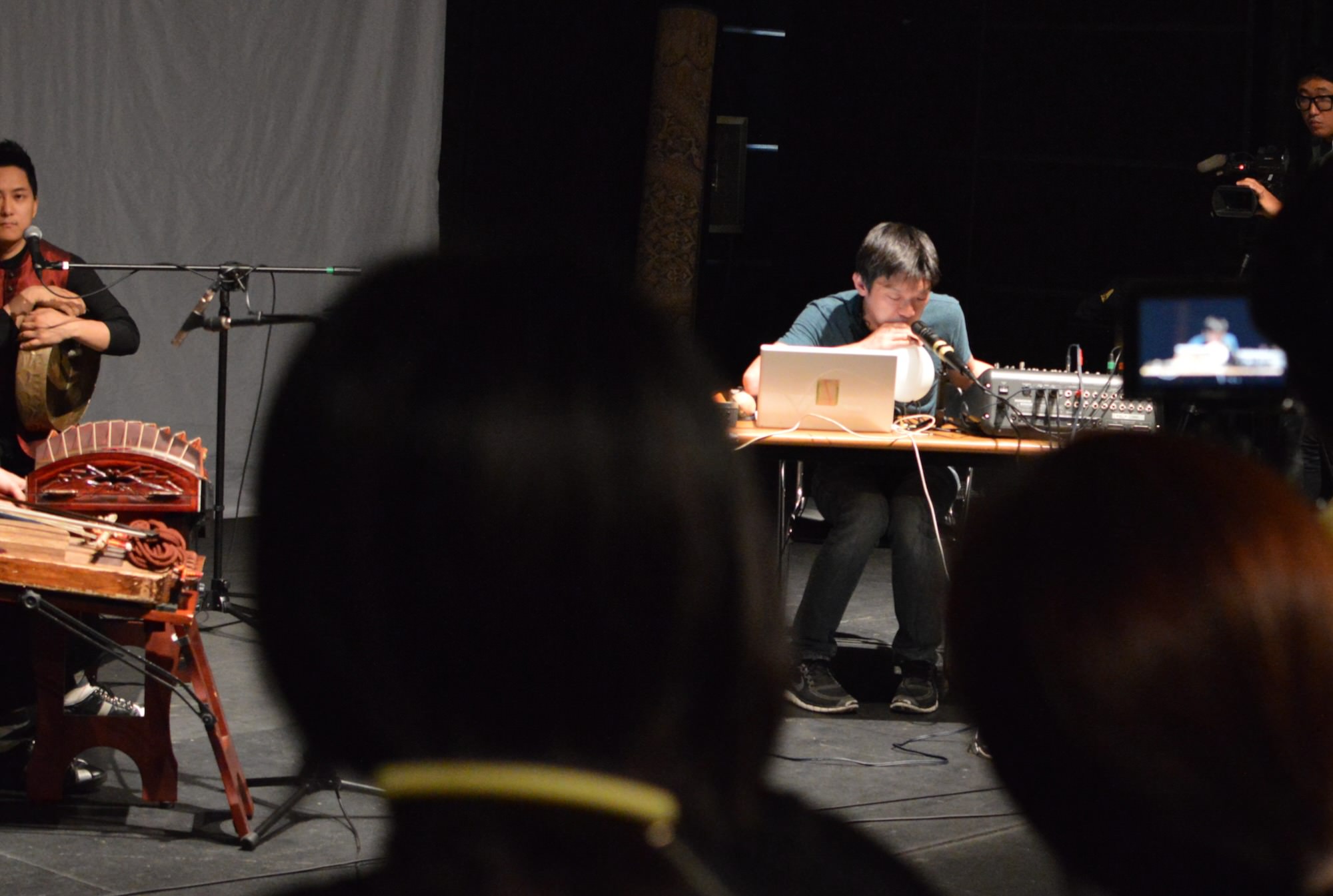
Week 4: envelopes, notes and compositions
Shaping sound in the short (and long) term
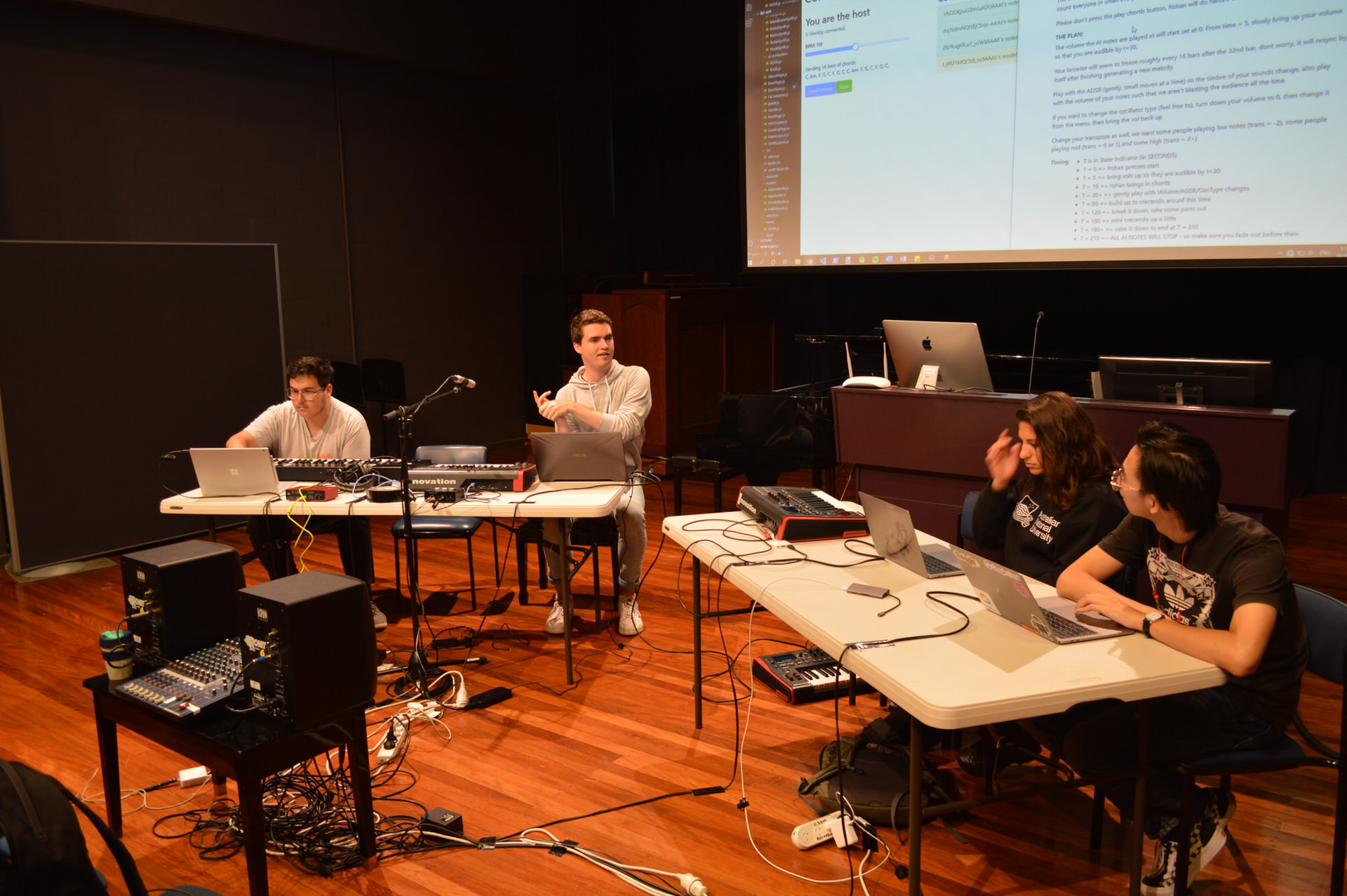
Week 5: networks & collaboration
Making computer music with multiple computers & musicians
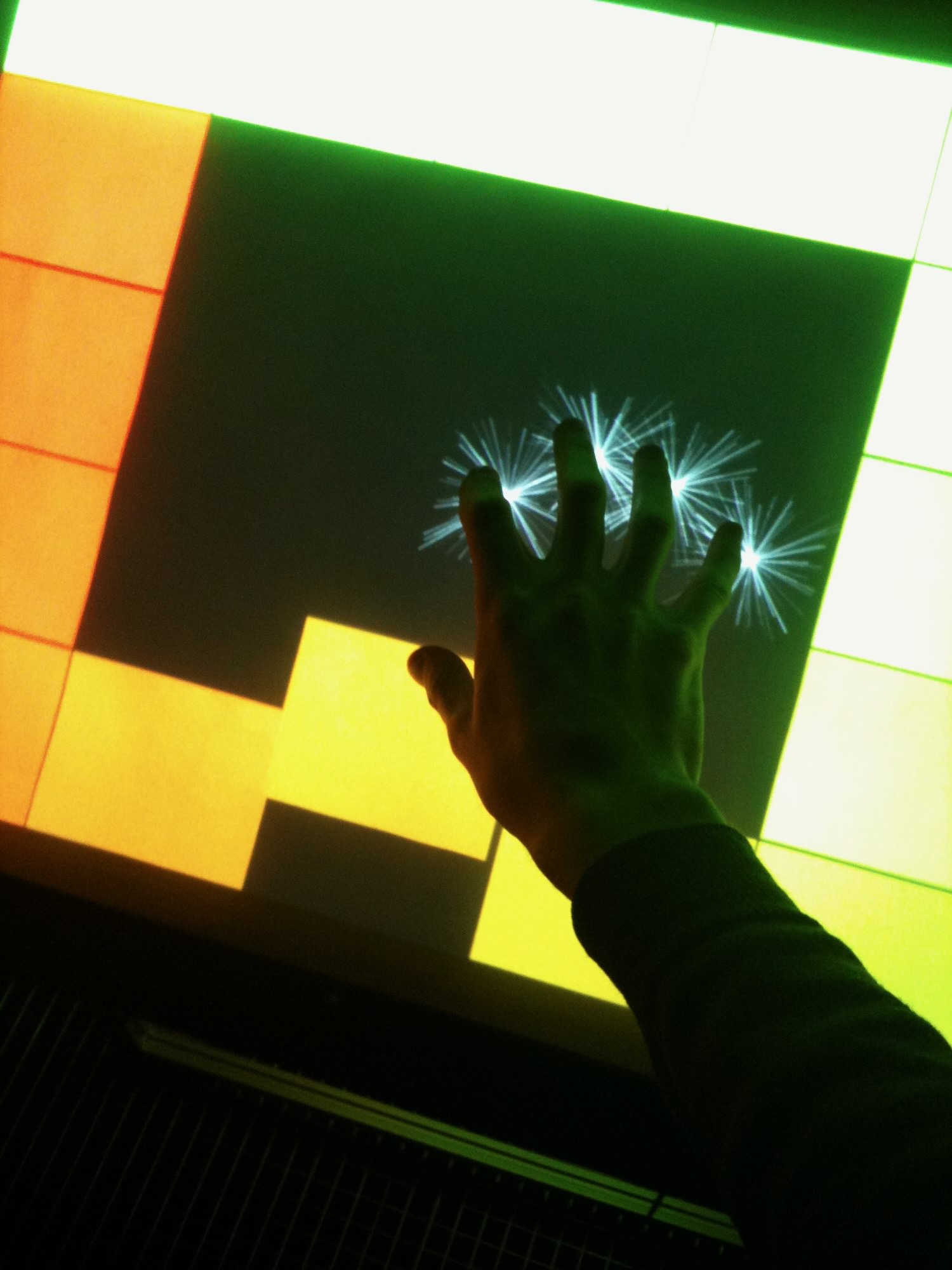
Week 6: interfaces
Building interfaces for musical expression
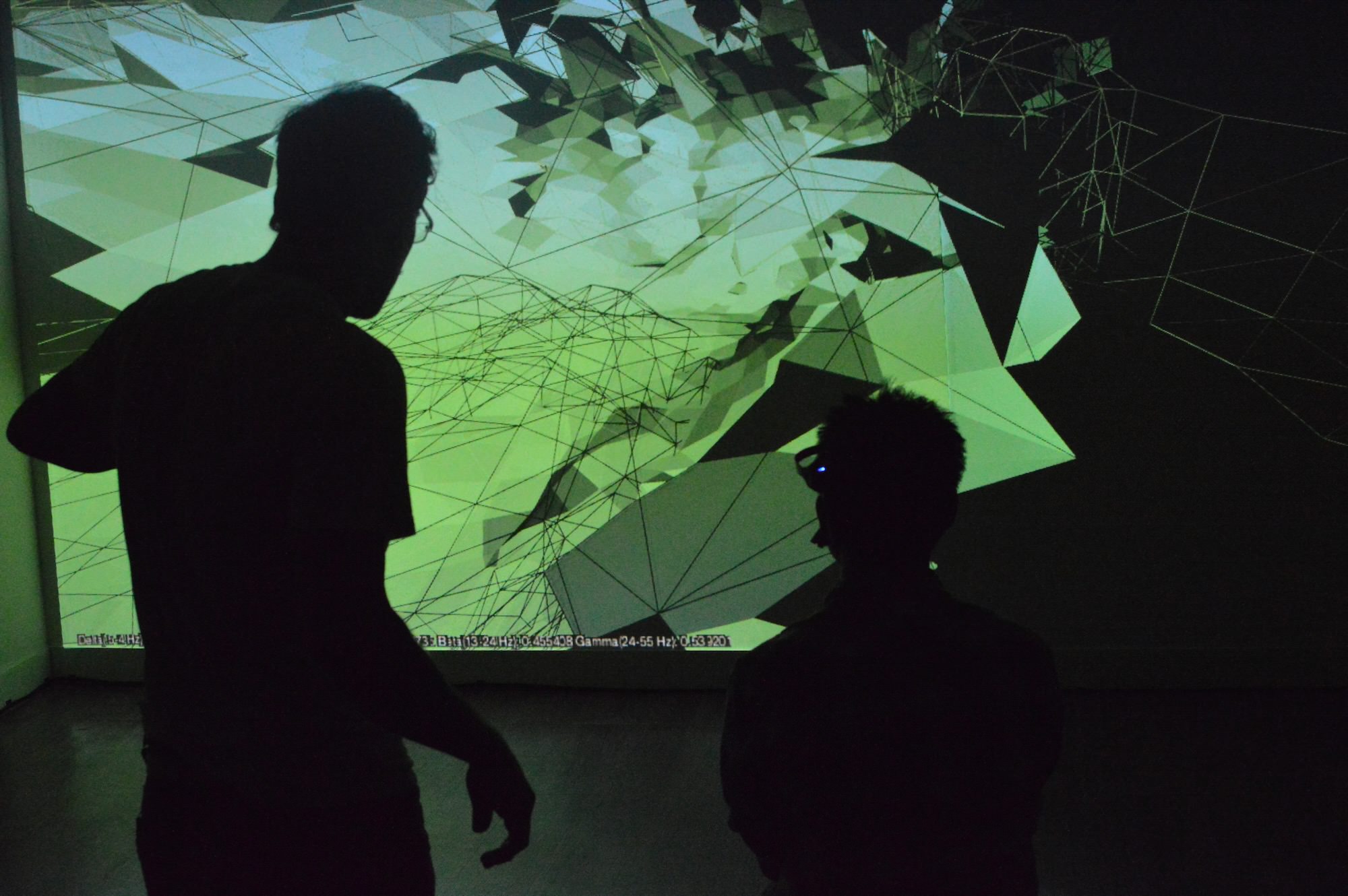
Week 7: algorithmic composition
Triggering events in pitch and time using algorithmic processes
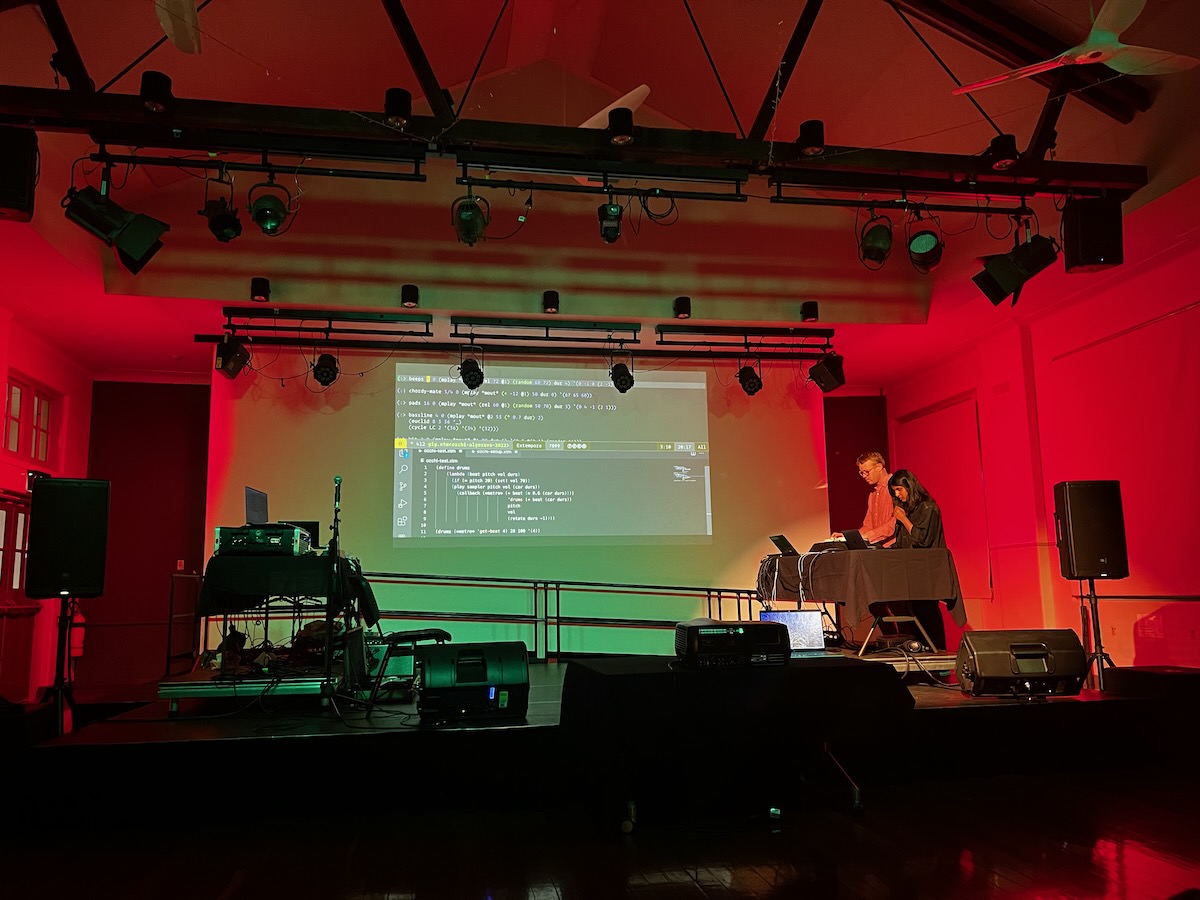
Week 8: live coding
Getting deeper into synthesis design
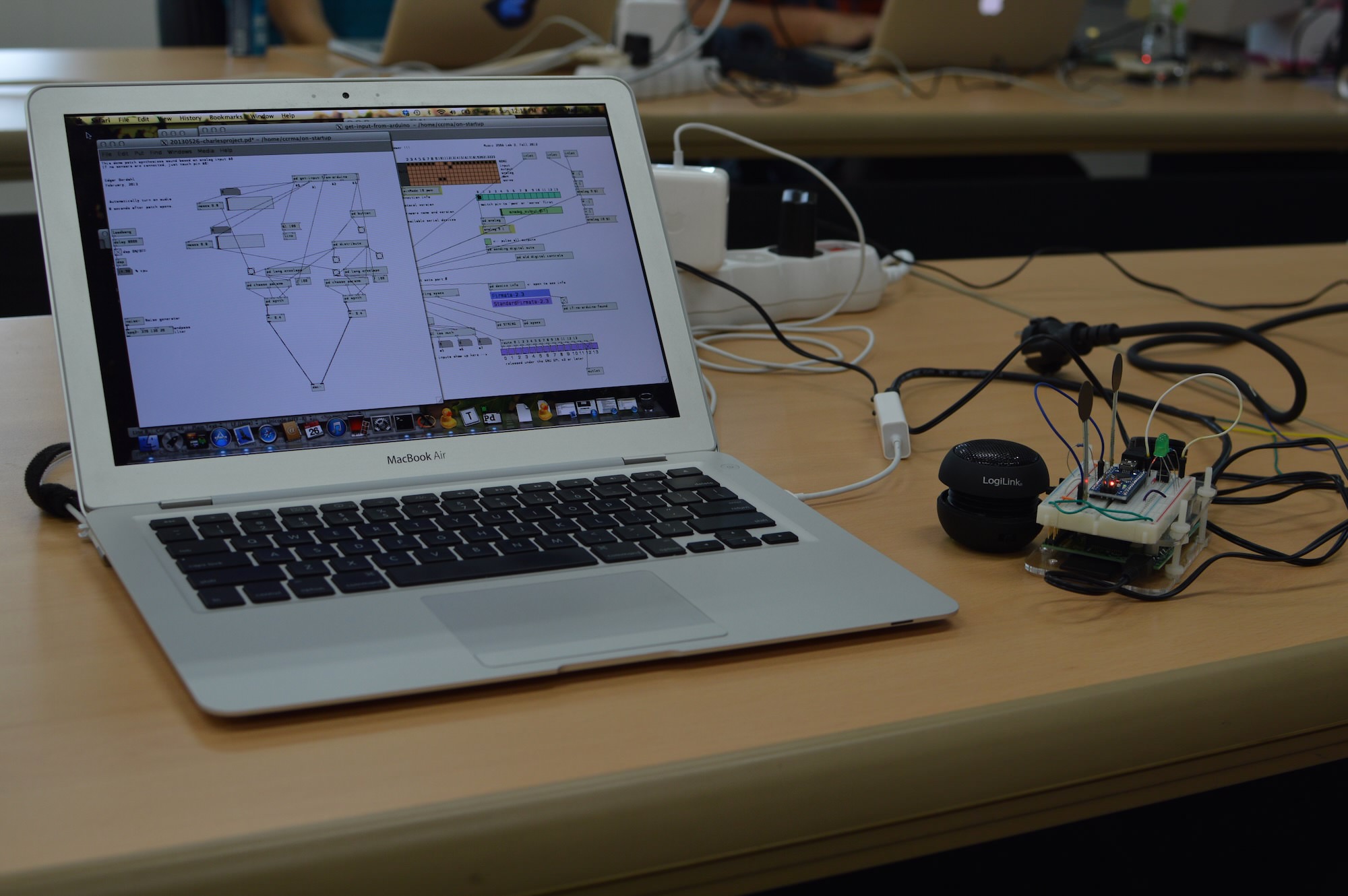
Week 9: synth design
Composing music live with code
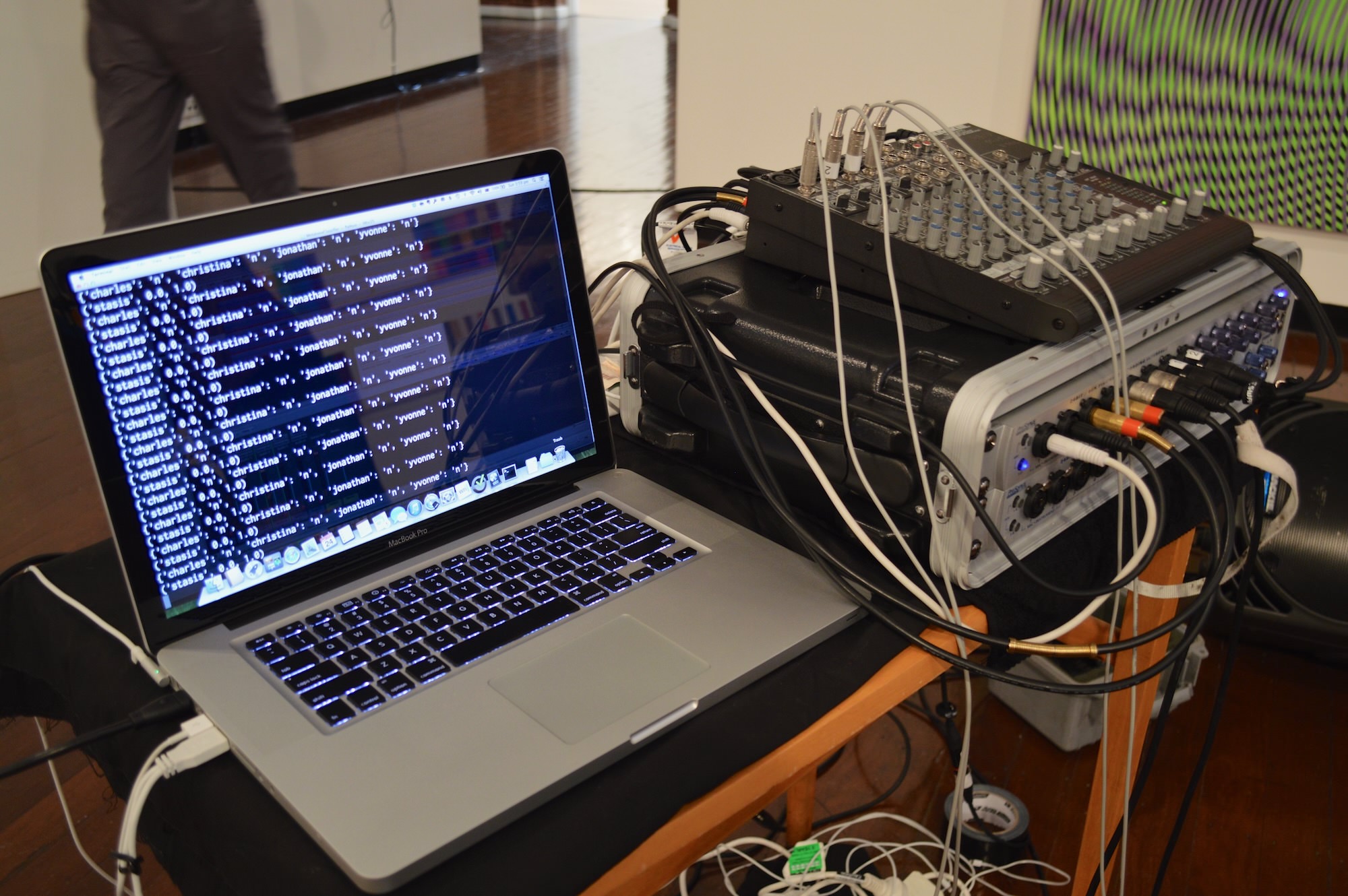
Week 10: topologies
Thinking about the parts of your performance and how they fit together